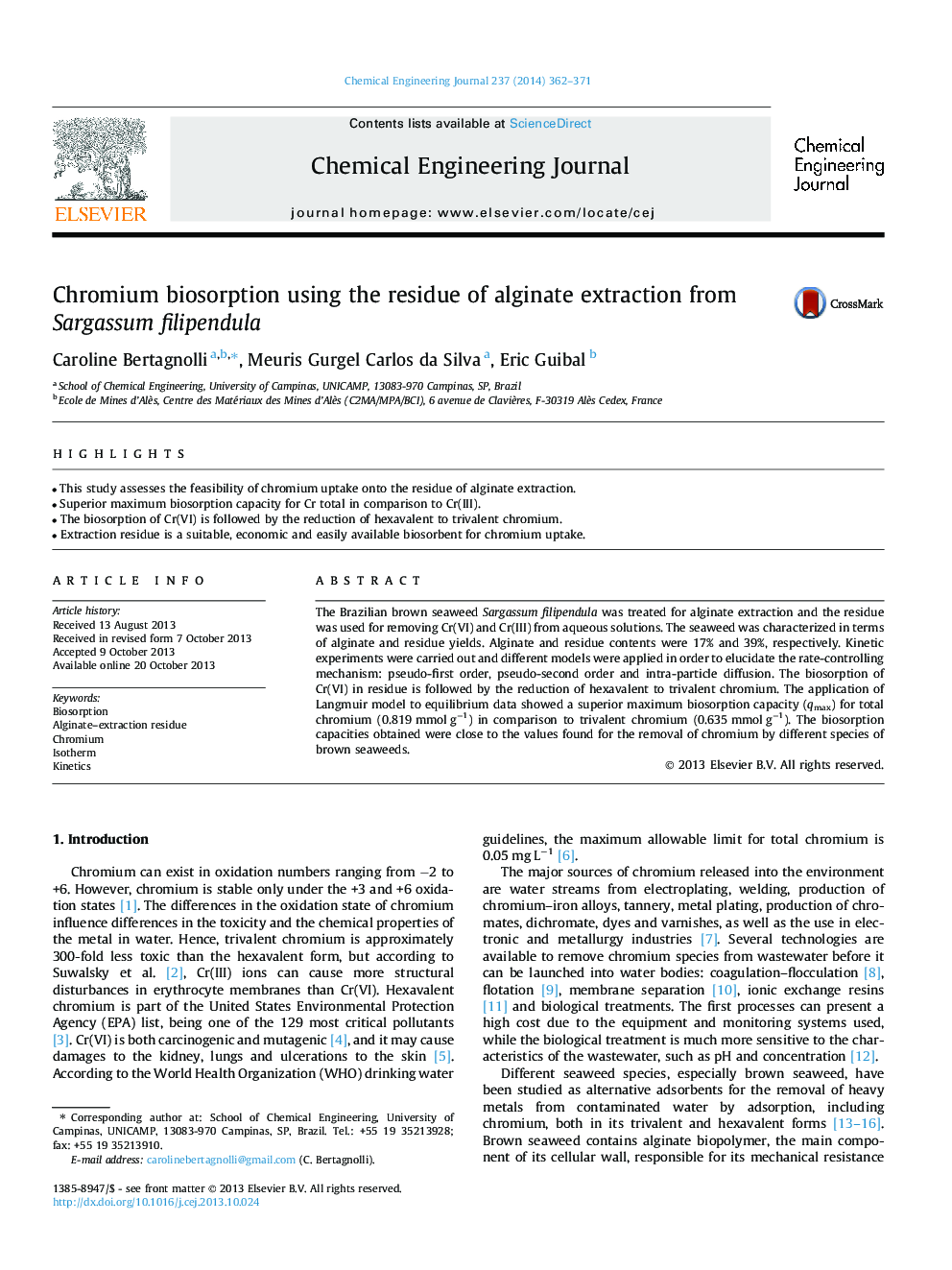| کد مقاله | کد نشریه | سال انتشار | مقاله انگلیسی | نسخه تمام متن |
|---|---|---|---|---|
| 148217 | 456407 | 2014 | 10 صفحه PDF | دانلود رایگان |

• This study assesses the feasibility of chromium uptake onto the residue of alginate extraction.
• Superior maximum biosorption capacity for Cr total in comparison to Cr(III).
• The biosorption of Cr(VI) is followed by the reduction of hexavalent to trivalent chromium.
• Extraction residue is a suitable, economic and easily available biosorbent for chromium uptake.
The Brazilian brown seaweed Sargassum filipendula was treated for alginate extraction and the residue was used for removing Cr(VI) and Cr(III) from aqueous solutions. The seaweed was characterized in terms of alginate and residue yields. Alginate and residue contents were 17% and 39%, respectively. Kinetic experiments were carried out and different models were applied in order to elucidate the rate-controlling mechanism: pseudo-first order, pseudo-second order and intra-particle diffusion. The biosorption of Cr(VI) in residue is followed by the reduction of hexavalent to trivalent chromium. The application of Langmuir model to equilibrium data showed a superior maximum biosorption capacity (qmax) for total chromium (0.819 mmol g−1) in comparison to trivalent chromium (0.635 mmol g−1). The biosorption capacities obtained were close to the values found for the removal of chromium by different species of brown seaweeds.
Journal: Chemical Engineering Journal - Volume 237, 1 February 2014, Pages 362–371